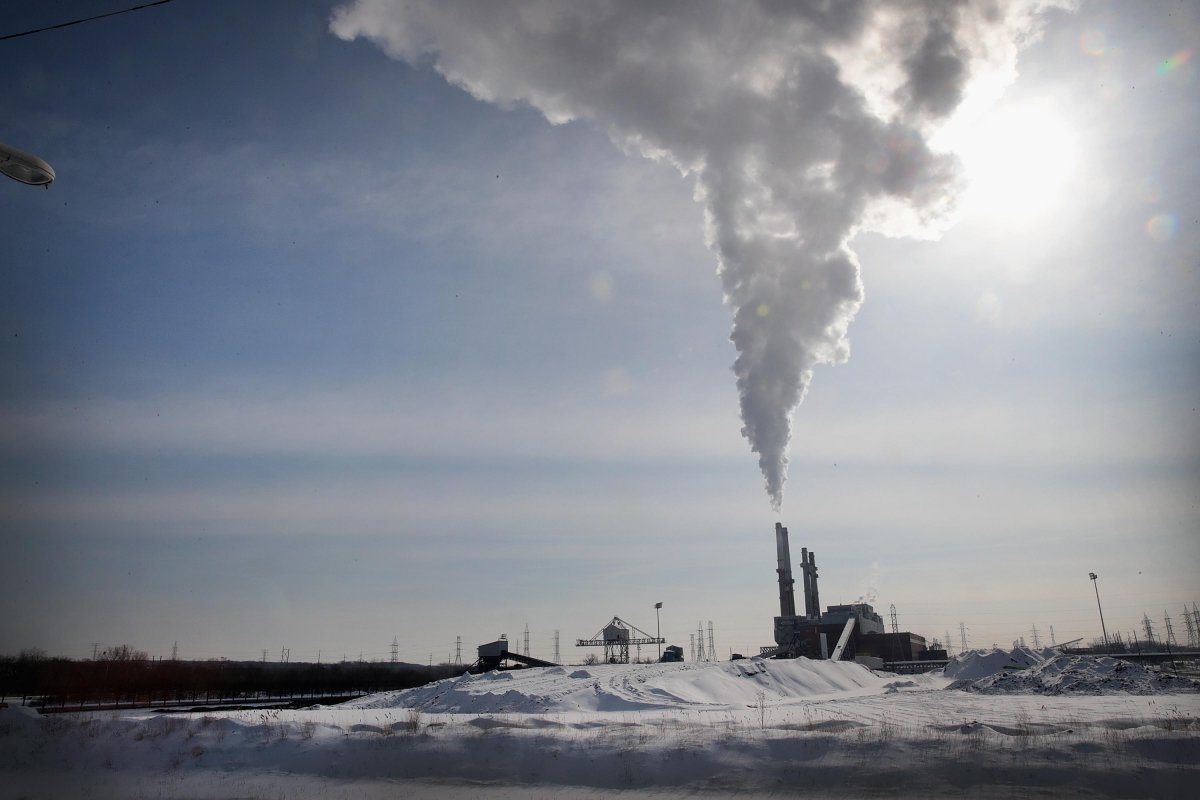Climate change is the defining crisis of our time.
Summer across the United States has been marked by historic Southwest heatwaves, millions of Americans living under toxic air quality warnings due to Canadian wildfires, and Northeast floods. Already in 2023, there have been 15 climate-related disasters costing over $1 billion each and killing 113 Americans. Without government intervention, it will get worse.
These impacts are not felt or distributed equally, with disparities based on race, gender, age, and class, and other factors. Climate change exacerbates existing inequalities and if left unchecked, could worsen them.
Social inequality and climate change are not naturally occurring disasters. It is no coincidence that those disproportionately impacted by climate change are the same people bearing the brunt of other crises fueled by corporate greed.

But these intersecting injustices are solvable. With sustained government policies we can transition our economy off of fossil fuels to renewables while improving society.
Take transportation, a core issue of environmental justice, as an example. The fossil-fueled transportation sector is the U.S.'s biggest source of emissions, responsible for thousands of premature deaths each year and billions in health damages.
Electrifying transit can solve this. Electric vehicles (EVs) reduce toxic tailpipe and traffic pollution linked to asthma, heart disease, and cancer. They are cheaper to fuel and maintain, saving consumers up to $12,000 on maintenance over the vehicles' lifetime. As technologies advance, costs will lower more.
Government investments like the Department of Transportation's $5 billion initiative to build a national EV charging network are important steps. But achieving the level of transit electrification needed to avoid the worst impacts of climate change requires more standards and more public investment.
The money is there. The US already spends about $20 billion every year subsidizing fossil fuels. And investments in clean energy will pay for themselves many times over by creating jobs and dramatically reducing energy and health care costs.
So what—or maybe better said, who—is standing in our way of progress?
Corporations controlling fossil fuel production and transportation created the climate crisis and are purposefully obstructing common sense solutions for the sake of profit.
Major oil companies, including ExxonMobil, have known since at least the 1970s that burning fossil fuels would cause "globally catastrophic" harm. They've poured money into deceiving the public, denying or casting doubt on science, and influence-peddling precisely to ward off policy responses—to prevent anyone from stopping their extremely lethal, existentially threatening, but wildly profitable business.
The story is similar for major automakers. When, in the 1960s, scientists at General Motors and Ford warned their vehicles were driving climate change, company executives spoke against federal investments in EV research and privately funded efforts to establish alternative "theories" to scientific consensus on climate change. Both companies plan to continue producing gas-powered cars and are members of trade industries lobbying against rules like EPA's proposal to put cleaner cars on the road, a publicly-supported measure.
Environmental rules save American lives, while expanding the economy. The last 40 years of Clean Air Act rules have prevented more than 200,000 premature deaths, reduced six common pollutants by 41 percent, and contributed massive economic growth. Ultimately, both industry and consumers suffer from climate inaction—there is no economy on an unlivable planet.
This decade is critical for action. Every fraction of a degree of warming prevented saves millions of lives, irreplaceable cultures, and trillions of dollars. Some corporations will stop at nothing — not even the self-evident harms of climate change—to line their pockets. The antidote is stronger government protections to stop this reckless money grab and secure our future.
Chelsea Hodgkins is the Senior EV Advocate for Public Citizen's Climate Program. She advocates for the US government and car companies to uptake strong ZEV regulations and improve their environmental, labor, and human rights practices in supply chains.
David Arkush is the director of Public Citizen's Climate Program and a fellow at the Roosevelt Institute. He is an expert on the climate crisis, financial regulation, regulatory law and policy, and consumer and worker protection.
The views expressed in this article are the writers' own.
Uncommon Knowledge
Newsweek is committed to challenging conventional wisdom and finding connections in the search for common ground.
Newsweek is committed to challenging conventional wisdom and finding connections in the search for common ground.
About the writer
To read how Newsweek uses AI as a newsroom tool, Click here.






